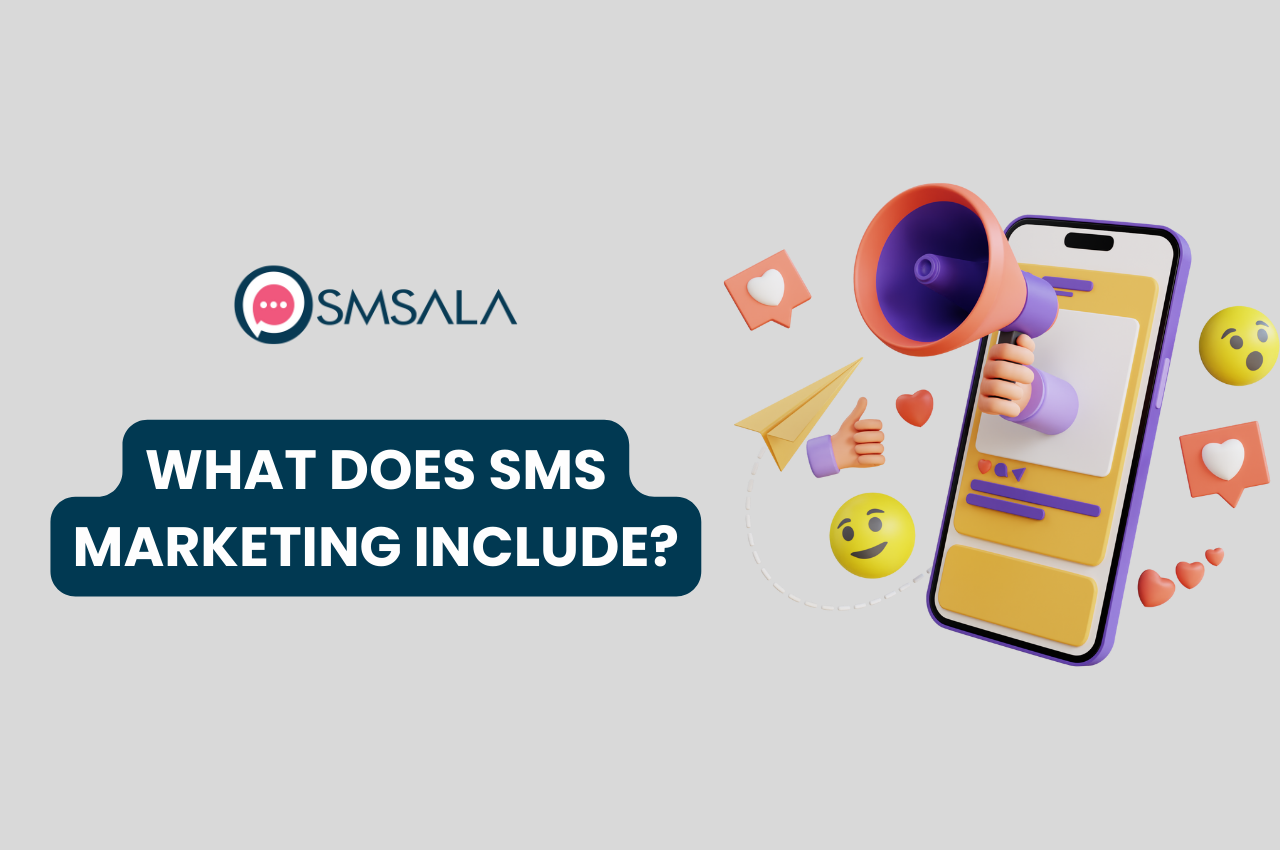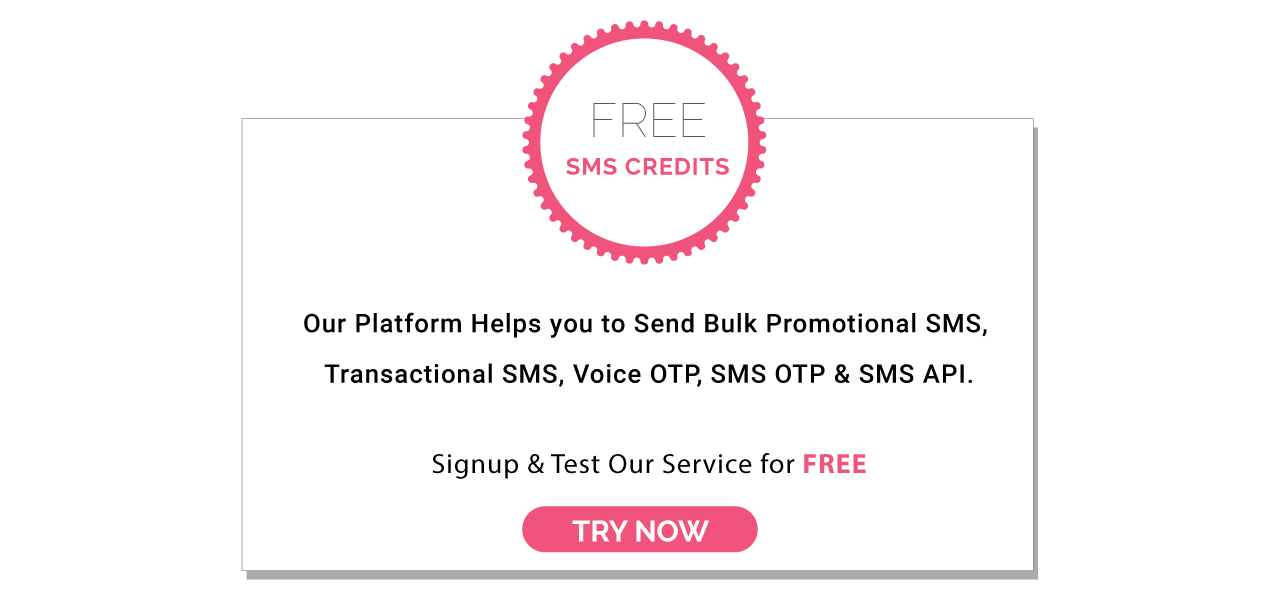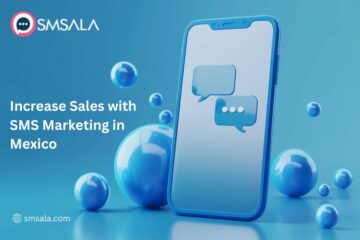SMS marketing is a way to reach customers via SMS. With the help of a web-based program, you can send bulk texts to customers/consumers who choose this. You can also set up campaigns where coupons are automatically sent over time, engage customers in surveys and questionnaires, or even run a sweepstakes contest. This form of marketing leverages the ubiquitous nature of mobile phones, ensuring that your messages reach customers directly and promptly, thereby increasing engagement and response rates.
However, you have to ask yourself what else can be done with one medium, right? There is much more in store than it seems. Read on to know. Here are some extra things you can do with SMS Marketing:
Coupons: Send exclusive offers to your loyal or potential customers. Uniquely generated coupon codes that you send to your customers prevent non-subscribers from using your deal. This method not only drives sales but also encourages customers to sign up for your SMS alerts to gain access to exclusive discounts and promotions.
- Drip campaigns
Automated messages can be sent, depending on how long your customers have registered for this. In the context of discount vouchers, you can, for example, send a discount voucher of 10% immediately after registration, a coupon of 20% after 3 weeks, and a discount voucher of 50% after 2 months of subscription by your customer. This is done automatically as soon as a customer logs in, so you don’t have to keep sending individual messages time and again. Drip campaigns help nurture customer relationships over time, gradually increasing engagement and loyalty.
- Poll
By texting different keywords, your customers can now only vote using text messages. With most services, you can conduct polls in which you collect answers during a specific period and chart them via your online dashboard. Sounds cool, right? Polls and surveys can provide valuable insights into customer preferences and opinions, allowing businesses to tailor their offerings more effectively.
- Groups
You can also divide customers into groups, depending on the keyword to which they respond, how they voted in a survey, based on their area code, and more. By segmenting your customers, you can send more targeted promotions and discount coupons. These are more personal, and receivers will also relate to them. Segmenting your audience allows for more personalized and relevant communication, increasing the effectiveness of your marketing efforts.
- Sending photos and videos
Multimedia Messaging Service (MMS) Marketing is a fairly new development in which you can send pictures and videos to customers. This is especially useful if you want to send a flyer or restaurant menu to a customer. MMS can enhance your messages with rich media content, making them more engaging and informative. Visual content can capture attention more effectively and convey information that might be difficult to express through text alone.
- Location-based marketing
Send different messages to clients, depending on their location. For example, if a customer is near your restaurant, you can send him a text message with information about the day’s dish or discounts in your restaurant. Location-based marketing leverages geolocation technology to deliver highly relevant and timely offers to customers, increasing the likelihood of immediate engagement and conversion.
Always remember that customers must be able to unsubscribe at any time. Fortunately, most (if not all) text marketing services are set this way by default. However, you need to remind customers of the opt-out option— i.e., “Reply STOP for not responding to messages.†Providing a clear and easy opt-out mechanism helps build trust and ensures compliance with regulations, protecting both your business and your customers.
Enhanced Engagement and Customer Experience
SMS marketing offers a direct and personal way to connect with your customers. Unlike emails that may go unread or social media posts that may get lost in the feed, text messages are typically read within minutes of being received. This immediacy makes SMS an incredibly powerful tool for urgent announcements, last-minute deals, and time-sensitive information.
Real-Time Communication: With SMS marketing, you can communicate with your customers in real-time, providing them with instant updates and responses. This is particularly useful for customer service, appointment reminders, and real-time promotions. For instance, a restaurant can send a text to inform customers of a happy hour special starting in an hour, driving immediate traffic.
Increased Open Rates: SMS messages boast an open rate of around 98%, far higher than email marketing. This ensures that your message is almost always seen, making it an effective channel for critical communications and promotional messages.
Higher Engagement: SMS marketing tends to have higher engagement rates compared to other channels. Customers are more likely to respond to a text message, whether it’s participating in a poll, redeeming a coupon, or simply engaging with your brand. This increased interaction helps build stronger customer relationships and loyalty.
Driving Sales and Customer Loyalty
SMS marketing is not just about sending messages; it’s about driving action and achieving tangible results. By leveraging the right strategies, businesses can significantly boost their sales and enhance customer loyalty.
Exclusive Offers and Promotions: Use SMS to send exclusive offers and promotions that are only available to subscribers. This creates a sense of exclusivity and urgency, encouraging customers to take immediate action. For example, a retail store can send a special discount code to SMS subscribers, driving traffic to their store or website.
Customer Retention: Engage your existing customers with regular updates, special offers, and personalized messages. Retaining existing customers is often more cost-effective than acquiring new ones, and SMS marketing provides a simple and effective way to keep your customers engaged and coming back for more.
Customer Feedback: Use SMS to gather customer feedback through surveys and polls. This not only helps you understand your customers better but also makes them feel valued and heard. For example, after a customer makes a purchase, you can send a follow-up text asking them to rate their experience or provide feedback on the product.
Best Practices for SMS Marketing
To maximize the effectiveness of your SMS marketing campaigns, it’s important to follow best practices that ensure your messages are well-received and comply with regulations.
Get Permission: Always ensure that you have explicit permission from your customers to send them SMS messages. This is not only a best practice but also a legal requirement in many regions. Use double opt-in methods to confirm that customers want to receive your messages.
Personalize Messages: Personalize your messages by addressing customers by their names and tailoring the content to their preferences and behaviors. Personalized messages are more likely to resonate with customers and elicit a positive response.
Keep It Short and Sweet: SMS messages have a character limit of 160 characters, so make sure your message is concise and to the point. Avoid using jargon or complex language that might confuse the recipient.
Include a Clear Call to Action (CTA): Your message should include a clear and compelling CTA that tells the recipient what you want them to do next. Whether it’s visiting your website, redeeming a coupon, or replying to the message, make sure the action is easy to understand and complete.
Timing Is Key: Send your messages at appropriate times to maximize engagement. Avoid sending messages too early in the morning or late at night. Consider your audience’s schedule and time zones to ensure your messages are sent at the most optimal times.
Track and Analyze Performance: Use analytics tools to track the performance of your SMS campaigns. Monitor metrics such as open rates, click-through rates, and conversion rates to understand what’s working and what’s not. Use this data to continuously optimize your campaigns for better results.
Provide an Opt-Out Option: Always include an opt-out option in your messages to allow customers to unsubscribe if they no longer wish to receive your messages. This not only ensures compliance with regulations but also shows respect for your customers’ preferences.
Conclusion
SMS marketing is a powerful tool
that can help businesses connect with their customers in a direct and personal way. By leveraging the immediacy and high engagement rates of SMS, businesses can drive sales, enhance customer loyalty, and achieve tangible results. By following best practices and continuously optimizing your campaigns, you can unlock the full potential of SMS marketing and create meaningful connections with your audience.
Whether you’re sending coupons, conducting polls, or running drip campaigns, SMS marketing offers a versatile and effective way to reach your customers and achieve your marketing goals. Start exploring the possibilities of SMS marketing today and see how it can transform your communication strategies and drive success for your business.




